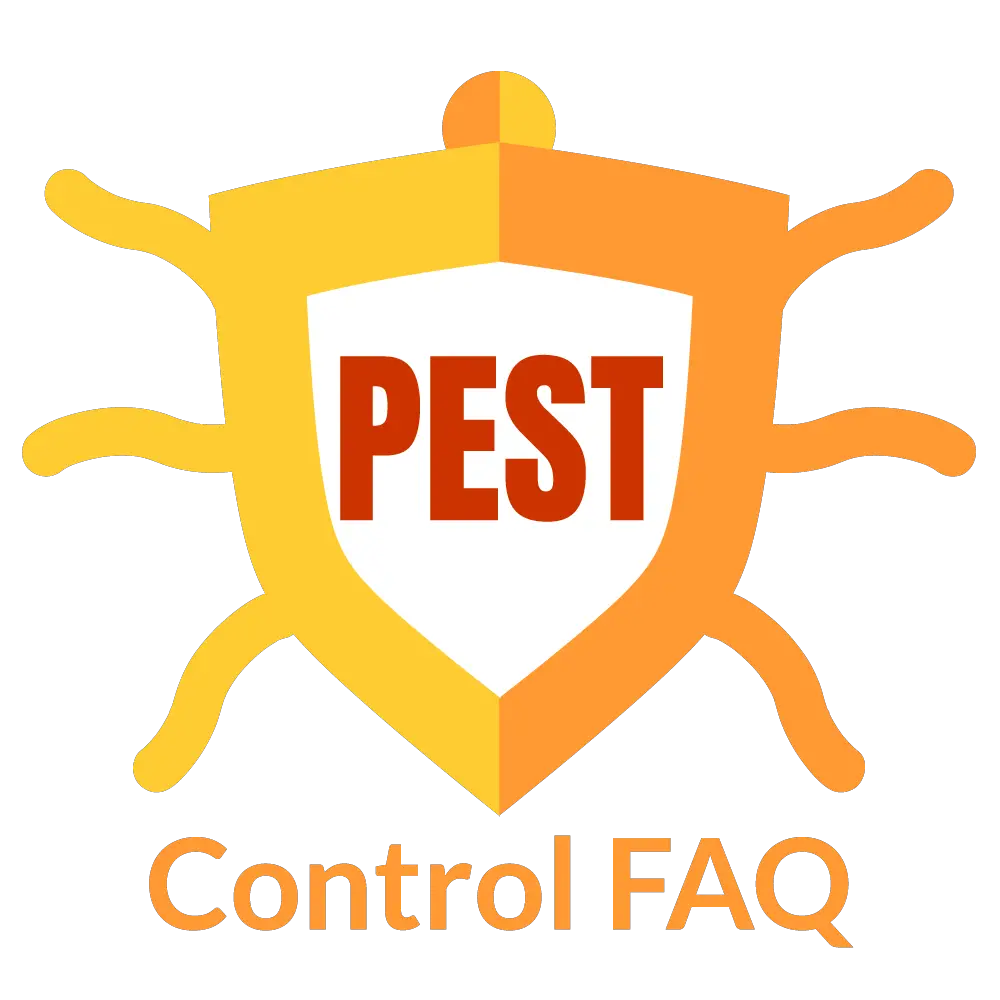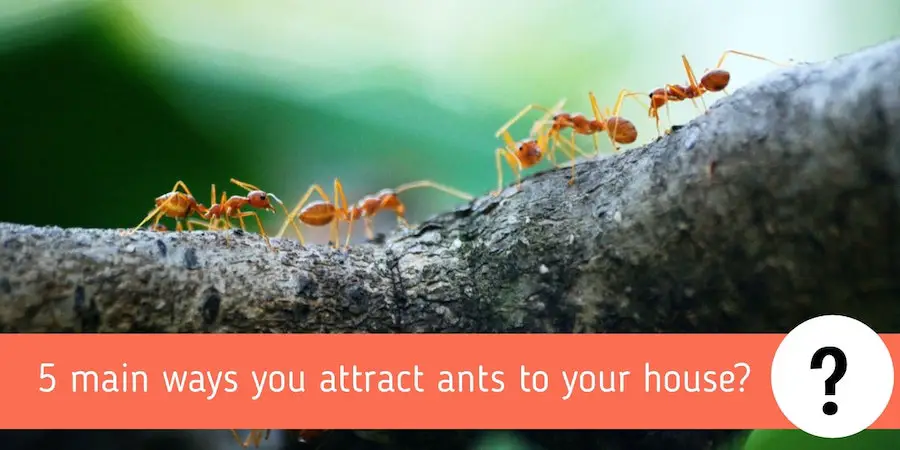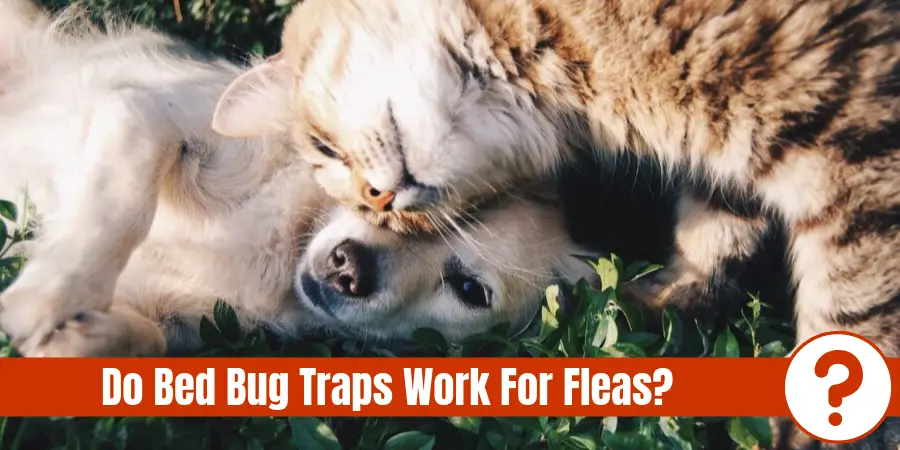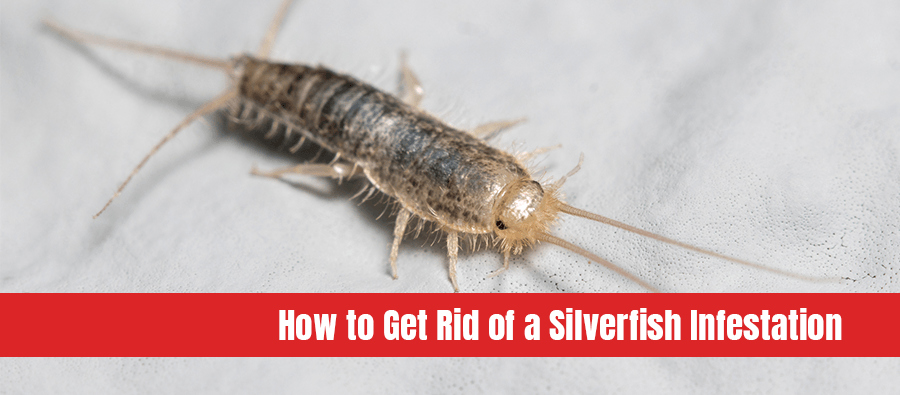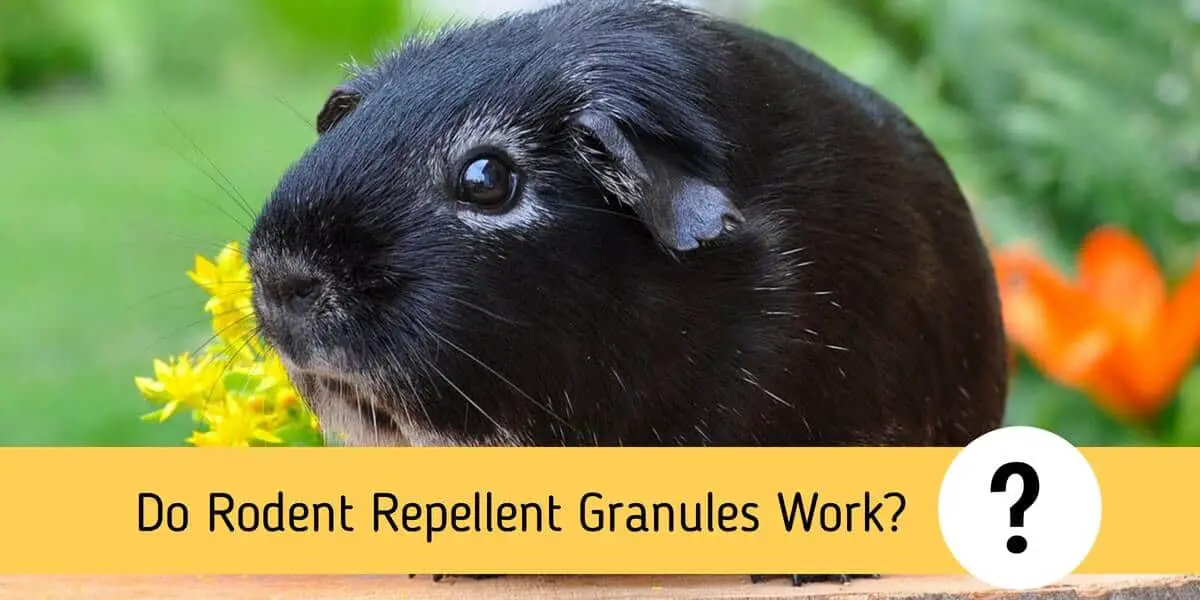Ants in the house are a common, annoying problem for people all over the world. Though there are lots of different species to deal with, they all have some basic reasons why they may invade your house. If you know how you’re attracting ants to your house, you can take steps to prevent them from coming in.
So, what are some ways you attract ants to your house? Ants are attracted to food left out or even crumbs forgotten under appliances. If you have water leaks in your home, ants may decide to move in. If your home is dry, warm, and has access points in wet and cold weather, ants may find your home more hospitable than outdoors.
That answer should give you a basic idea why ants may be invading your home. There’s more to the story though, so if you’re ready to really stop the ant invasion, read on for the details.
Table of Contents
Are the ants living in my house?
Sometimes ants are living in your house, but sometimes they’re just visiting. Ant colonies send out scout ants to find food, water, and building materials. If a scout gets into your house and finds something useful, it will signal for the workers to come and gather.
If you have a lot of big, busy ant colonies around your house, it’s possible a new one will form inside your house though.
Why do you get ants in the house?
Ants love to cohabitate with humans, but humans rarely share those feelings. Ants can bring diseases, destroy food stocks, and damage homes, so it makes sense to try to avoid getting them in the house at all.
To prevent ants from getting in your house, or to get a current ant infestation under control, you need to know why ants get into houses in the first place.
- Ants seek food in your house
- Ants look for water in your house
- Ants seek shelter inside your home
#1 You attract ants to your house when you leave food out
One of the biggest reasons ants enter houses is to get food. Humans are one of the few animals on the planet that actually store food in their homes instead of hunting or grazing away from home, and ants are more than happy to take advantage of that.
Ants don’t need large quantites of food
Obviously, you don’t want to leave large quantities of food out on counters. But ants don’t need much to be tempted into your home. Even a few small crumbs on the counter can be enough for a hungry scout to report back to the nest. Be sure to wipe down counters after every meal prep and before you go to bed each night.
Don’t stop at cleaning the counters though. There are plenty of other places ants will go in your house to collect food, too. Crumbs can fall on the floor, between cabinets, between the counters and major appliances such as the range or fridge. Ants aren’t picky, so they don’t mind eating crumbs that have gathered over weeks, months, or even years.
Improperly stored food
Improperly stored food is another way you attract ants to your house. This can be as bad as wide open bags of chocolate chips in the pantry to as innocent as a drop of honey on the side of the bottle. It really doesn’t take much to catch a scout ant’s attention, so pay attention to your food storage and clean-up habits.
#2 You attract ants to your house when you leave pet food out
You may not view your dog’s or cat’s food as a tempting morsel, but ants sure do. Even if an ant can’t carry away a whole piece of dry kibble, they can climb into your pet’s bowl to fetch the crumbs at the bottom.
Wet food isn’t an obstacle either. Ants are more than happy to take a few bites of your pet’s wet food and take it back to the nest, then come back for more. Before you know it, you’ll have an entire parade of busy ants crawling in and out of your cat’s wet food dish.
Do ants contaminate food?
Ants can contaminate any food they come in contact with. Since they crawl around outside and don’t really care what they trudge through, they can bring in bacteria from any number of unhealthy places.
The worst part is that ants may already be walking around on your food and your counters long before you ever see one. They’re so small that most people won’t notice them until the colony is already pretty significant in size.
Some bacteria that ants can pass on to humans include staphylococcus and salmonella. You may recognize these are bacteria that can cause incredibly painful gastric upset and even death for some at-risk individuals.
There are plenty of contaminants ants can spread to your pets, too.
What attracts ants besides food?
Food is the most obvious reason ants enter homes. By reducing their access to your food, you’ll greatly reduce your chances of getting an ant infestation. But ants need more than food, and humans have proven to be great providers for an ant colony’s every need.
Therefore these are the other common reasons ants may invade your home:
- Water
- Shelter
- Building materials
#3 Ants are attracted to water
If you have wet or damp areas, ants may move in. Like all living creatures, ants need water to survive. If you have a habit of leaving standing water on your counters or floor, chances are good that ants will find it. This is especially true in extremely hot weather or when things freeze when outdoor water is harder to find.
It’s not just the kitchen you should worry about. Ants very often find water in the bathroom first. It’s not uncommon for people to leave wet footprints or a damp rug in front of the shower or bath. That wet rug holds enough water to satisfy thirsty ants.
All of this can be an easy fix! Mop up any spills on the floor, keep your counters dry, and don’t leave wet towels or rugs laying around.
Ants are attracted to water you can’t see
You can be hyper-vigilant and always mop your floors and dry your counters, but still end up with water-loving ants. How is that even possible?
The answer is simple: you have a leak. Water leaks happen most often around bathrooms and kitchens, of course, but if your water pipes run the length of your house, you could have a leak anywhere.
While all ants need water and may choose to move into your leaky house, there is actually an ant species called a moisture ant. As their name implies, they are particularly fond of wet environments. They tend to make colonies near a source of damp wood, especially any that is also beginning to decay.
#4 Ants like it when you make indoors more hospitable than outdoors
Sweltering heat and icy conditions are two surefire ways to drive insects and other pests into your home. Ants are sensitive to temperatures and have no qualms with moving their nests into your temperature-controlled home to avoid overheating or freezing. Some ants move into homes because of excessive rain, too.
If you notice anthills or other nests around your home, promptly have them removed. If there aren’t any good housing locations around your home, you’re much less likely to get ants moving into your home.
Unfortunately, there isn’t much else you can do about this issue. Humans like to live in comfort, so it’s natural that pests would want to move in, too. Rather than making your house as cold or blistering hot as the outdoors, find ways to stop the ants from getting inside in the first place.
#5 Ants are attracted to tempting access points
More than anything else, ants love to snag an easy opportunity. Ants are touted as hard workers, but they won’t usually go out of their way to force their way into your home. If you have ants, that means you probably have an existing access point somewhere.
Ants don’t require much space to get inside. That makes locating and sealing all access points difficult for homeowners. But it’s not impossible. The following places are ways you attract ants to your house.
Cracks and seams in siding and walls
All walls have seams and many have cracks, especially in older houses. These seams can open up over time as the house settles, and cracks can form for any number of reasons.
Regardless of how they open up, cracks and seams in walls and siding are one way ants get into your house. Just one tiny crack is all a scout ant needs to find a warm, dry place inside your walls.
Open windows attract ants
Obviously, ants can just crawl into any open window. It’s best to be sure your windows all have screens to help prevent an infestation. But ants may also come in through open doors, so be vigilant about closing things up.
Holes in window screens let ants in your house
Maybe you don’t leave your windows and doors open but still have ants. In that case, you might have holes in your window screens. It doesn’t take much of a hole to let the smallest ants in, so don’t leave those holes!
Gaps in the window frame are big enough for ants to enter
Many people neglect to check for gaps around windows. And even if they do, they often forget to check around the frames, too. Any space, no matter how small or insignificant to you, is likely big enough for an ant to squeeze through. Seal windows and frames, and check them yearly for cracks or gaps.
Rotted wood around windows and doors
In older houses or houses situated in damp regions, rotting wood is a common way for ants to be attracted. Not only will they love the free water with your damp and rotting wood, but it makes it much easier for them to burrow inside or just find a crack that’s already around the wet parts.
Keep your window and door frames dry and in good repair to prevent ants from getting inside.
Do ants eat rotting wood?
Ants don’t really eat the wood in your house. Certain species are known as “wood-destroying insects” and they include the infamous carpenter ant. These ants aren’t eating the wood, but they are destroying your home to use pieces of it to build homes of their own.
Gaps in the foundation
We like to imagine that our houses are perfect, but there are always mistakes somewhere. Even the newest houses may have gaps in the foundation that let ants waltz right in. Check around the foundation before you purchase a new house to find any gaps.
Cracked foundations
Cracked foundations can be just as bad as gaps in a new foundation. They might even be worse since most cracks are so small you likely won’t see them right away. Foundation cracks are a favorite way for ants to get into your house.
Under the carpet, tile, and hardwood flooring
A lot of people are shocked to learn that ants can happily travel from room to room underneath your carpets. They also love to use the crevices between tile and hardwood flooring. To access all areas of your home.
Utility lines let ants in
Ants are smart creatures that have figured out the secret door to your house. All of your utility lines have to come inside from somewhere. The holes left around those lines are a perfect access point for ants.
How to prevent ants from invading your home?
Don’t let them use your house as a grocery store
To prevent ants from using your house as a grocery store:
- Use sealable plastic containers to store all foods
- Wipe down and disinfect all food prep areas
- Clean and disinfect all food consumption areas
- Don’t eat food anywhere other than the kitchen or dining area
- Put all fruits and veggies in the fridge
- Don’t leave dirty dishes in the sink
Feed your pet on a set schedule
To prevent this, simply feed your pet on a set schedule. Allow him or her to eat for 15 – 20 minutes, then remove the leftover food and store it properly. Wipe down or rinse the bowl to be extra certain nothing remains that ants might want to take home.
Don’t store pet food in their original bags
They don’t seal! Move all pet foods to sealable containers. Better yet, store it outside in a waterproof, sealable container. Store wet pet foods in the fridge.
Put up a barrier to deter ants
Aside from hiring a professional pest control company to get rid of your ant problems, you can also try to prevent an infestation in the first place. Following the advice above should go a long way in preventing ants from entering your home.
Recommended products against ants
However, you can also put down another line of defense. Therefore I’ve decided to list some top choices for you to try out.
Ortho 0275510 Fire Ant Killer
The other product which has shown good results against ants is Ortho 0275510 Fire Ant Killer. For this product, no watering is required, and it kills the queen and destroys the mound. On Amazon’s website, this product has a 4.7 out of 5 stars.
Ortho Home Defense
Using an ant barrier such as Ortho Home Defense you may stop ants from getting inside in the first place. This will provide you with up to 12-month protection against ants.
Related Questions
Why do ants come in the house when it rains? For humans, raindrops are nothing special and usually nothing more than a minor annoyance. For ants, rain can be deadly. For ants, a raindrop is a lot like a human being hit with a huge bucket of water. Ants move inside during rainy weather to stay alive and get dry.
Why do ants come in the house when it’s hot? Ants are tough insects, but they do have their limits on what they can withstand. Extreme heat isn’t fun for any living creature. Ants don’t have many options for cooling off in hot weather and may decide to crawl into a human’s house to avoid the heat. This is especially true if the colony is overcrowded and sitting in the hot sun for too long.
Can ants infest a house? Yes, ants can infest a house. In fact, a small colony of ants can go unnoticed for months or even years if they’re cautious and avoid humans. But all colonies grow and will eventually become obvious.
Do ants go back to their nest at night? Yes, ants will typically go back to their nests at night, but not always. Every ant species is different, and there are many factors that come into play to help an ant decide when it needs to go home. Cold, dark, rain, are all reasons an ant may go back to the nest. If the ant colony is inside your home—in the crawlspace, for example—they won’t need to go home at night because they are already home
Are house ants harmful? Ants in general can be harmful for a number of reasons. They can all carry diseases that can be passed on to humans. They can contaminate human and pet food supplies and water. Ants can also damage structures.
